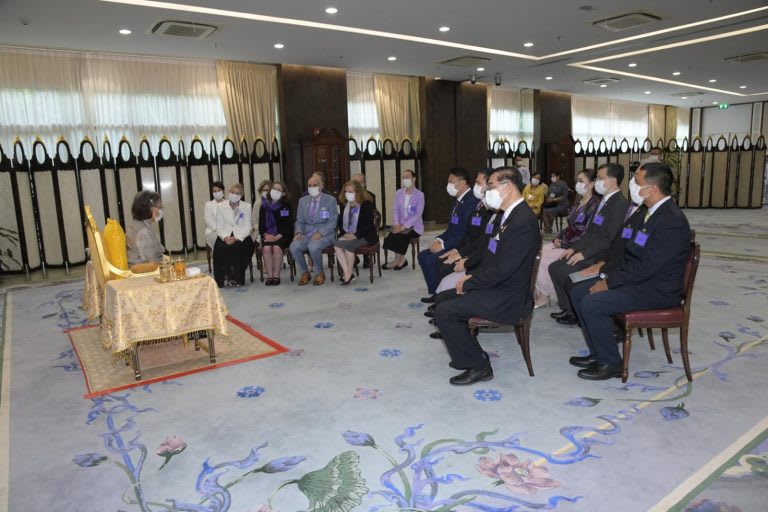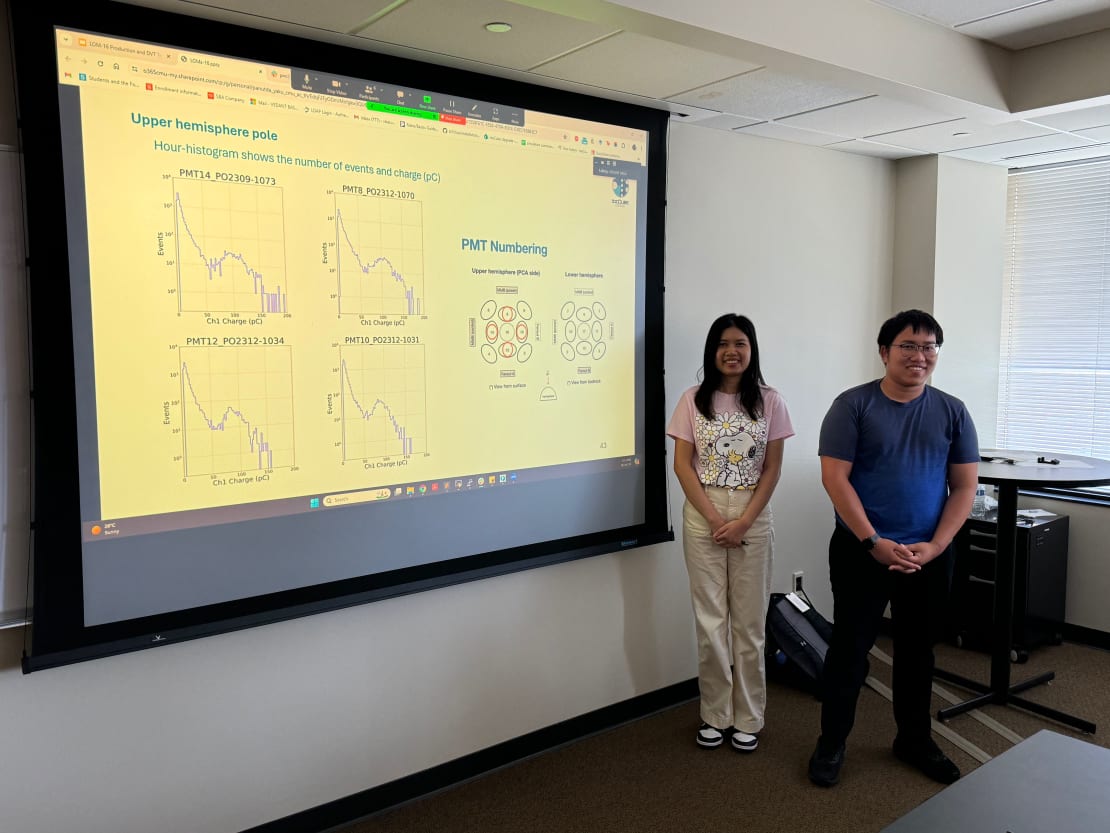This story was originally published by the University of Wisconsin–Madison International Division.
Among the University of Wisconsin–Madison’s many ambitious research endeavors, the IceCube Neutrino Observatory stands out as one of the most unique. This remarkable telescope, which has instrumented a billion tons of South Pole ice, is designed to search for tiny, ghostlike particles called neutrinos, helping scientists study the universe’s most powerful cosmic engines. When neutrinos interact with ice molecules, they produce tiny flashes of blue light, known as Cherenkov light, which IceCube detects.
IceCube research is carried out by the IceCube Collaboration, an international group of more than 350 scientists from 58 institutions around the world. The Wisconsin IceCube Particle Astrophysics Center (WIPAC), a research center at UW–Madison, is the lead institution for the IceCube project. WIPAC is responsible for the maintenance and operation of IceCube, ensuring that the detector runs around the clock.
This global scientific collaboration includes Thai-IceCube, which is comprised of Chiang Mai University, Chulalongkorn University, the National Astronomical Research Institute of Thailand, and the Panyapiwat Institute of Management.
A recent agreement signed between UW and Thai-IceCube highlights the success of this collaboration and paves the way for increased scientific exchange between institutions.
The signing ceremony, held on June 22, 2024, at Sa Pathum Palace in Bangkok, was observed by HRH Princess Sirindhorn, who has long supported collaboration with global institutes for scientific research in polar regions. Participants included UW Chancellor Jennifer Mnookin, IceCube Associate Director for Science and Instrumentation Albrecht Karle, Information Technology Foundation Secretary General Pairash Thajchayapong, Chiang Mai University Vice President Ekkachai Mahaek, Chulalongkorn University Acting President Wilert Puriwat, National Astronomical Research Institute of Thailand Executive Director Saran Poshyachinda, and Panyapiwat Institute of Management President Sompop Manarungsan. Also present at the signing were members of the UW delegation, including International Division Dean Frances Vavrus and leaders from the Wisconsin Foundation and Alumni Association, as well as the Wisconsin Alumni Association-Thailand chapter.

“This agreement lays the foundation for increased collaboration on future upgrades to the IceCube Neutrino Observatory,” says Karle. “Under HRH Princess Sirindhorn’s stewardship, Thailand’s IT foundation is already making valuable contributions. For IceCube-Gen2, we are exploring the possibility of the Thai-IceCube consortium contributing significantly to instrumentation.”
HRH Princess Sirindhorn has advanced polar research through her Information Technology Foundation (ITF). Initiatives include IceCube science-focused summer schools (“Thaiscube”) at Chiang Mai University (CMU), support for CMU engineering faculty member Dr. Chana to aid in the construction of the IceCube Upgrade at the South Pole in 2024/25, and sponsoring Thai students for research internships at UW–Madison.
Two Thai scholars, Panutda (Nan) Yakum, a Ph.D. student in astronomy from Chiang Mai University, and Yanapat Limrachadawong, a master’s student in physics and computational physics from Silpakorn University, traveled to UW–Madison campus in summer 2024 for hands-on experience at WIPAC.

During their five-week stay, Yakum and Limrachadawong contributed to the construction of a new optical module for the IceCube Upgrade, slated for deployment in 2025-2026. This design is part of IceCube-Gen2, a future high-energy extension of the IceCube Neutrino Observatory at the South Pole. They assisted with preparing subcomponents, integrating modules at the Physical Sciences Lab, and conducting verification tests at Chamberlin Hall. Additionally, their discussions with UW–Madison scientists and engineers led to valuable improvements in the assembly process.
Yakum lauded the international collaboration between Thailand and WIPAC, calling the experience a “wonderful opportunity and unforgettable memory.”
Limrachadawong agreed, also noting, “In scientific research, you have to seek collaboration, because through collaboration you gain more perspective from experts from around the world.”